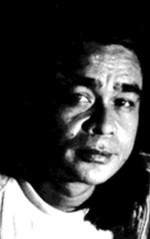
RAYMUND FERNANDEZ
Last Sunday I was fortunate enough to listen to a strongly worded statement from the Redemptorists condemning the spate of killings resulting from the “War on Drugs,” and how it has become a war against the poor.
If the purpose of religion is to give us a sense of peace, then I felt the statement did just that.
I walked away from Sunday mass with a sense of peacefulness with my own church.I wondered, of course, why it took so long in coming.
There is no moral ambiguity where murder is concerned.
The statement of the Redemptorists did not mention the President by name.
Neither did it call out any institution of government by name, nor did it use the “g” word, “g” as in genocide. But perhaps, it did not have to.
It does not take much to understand how shabu became a drug of choice among the poor, especially the working poor.
I know enough to know how shabu keeps you awake and alert and go for hours without sleep.
A professional driver, say a taxi driver, a jeepney driver, even the sikad-sikad driver could make immediately more money just by working longer hours. More important: without getting hungry, and hunger is half of the issue.
The middle class of the Philippines think of shabu as a recreational drug that keeps them happy and alert through rave parties that could, if properly fueled, last till the wee hours of morning.
For drivers and workers, the story is entirely different. Shabu is gruel. In their sense of the word, the issue is rooted on how little they make for the amount of work they do. And is there ever a surfeit or oversupply of joy, happiness, and contentment where they are concerned?
It is not correct to directly equate their use of drugs to criminality, especially the rape of little children. Statistics could give you a link between drug use and criminality, but the link is an indirect link at best.
The two are related but there would be many intervening factors that need to be taken into account, factors like the inherent nature of the slums — how the lack of privacy and security here can only encourage criminality, especially rape.
Take also into account the lack of educational opportunities, the fact of kids growing up in the streets unattended.
And finally, consider the nature of poverty itself. Even without shabu, a drug called alcohol would do the job just as easily, if the problem was merely to link drug use to criminality.
The perspective defines the narrative. The poor, by themselves, could never launch a war on drugs. And one must have to ask, who is best served by it?
The world is changing. Quite a few in the middle class are climbing higher in society.
The greater number of them will be left behind together with the rest of the population, the rest of the population being poor. One expects a deep-seated frustration from that fact.
Ancient feudal and colonial values persist. Especially, when it is asked: What do we do with so many who are poor and will be poor in the future? The old answer was: Keep them in check with draconian laws and measures, even murder.
This is how the rich and powerful answer this question even now. It is the same answer since olden times, or since the time when the Spanish ruled over these islands.
And yet, no one can escape the fact that the problem of drugs is linked directly to the problem of poverty.
The answers to the problem of poverty have been there and spoken of repeatedly since the period of the Commonwealth.
We know, as we have always known what needed to be done: Land reform, urban housing reform, educational opportunities for the poor, respect for people’s rights, social justice, a more equitable society all around.
But, of course, as it has always been, genocide is so much cheaper, especially when one views the problem from the perspective of the ruler, the rich, and the powerful, those who have taken over from our old colonial masters.
In the light of their heartless, pragmatic economics, it is simply easier and cheaper to kill. It is, even, the only possible way.